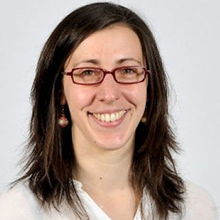Environment and Health over the Lifecourse

The Environment and Health over the Lifecourse research programme aims to conduct high-quality integrative research to expand knowledge on the causes and mechanisms of non-communicable diseases (NCDs). The programme focuses on environmental, radiation, occupational, lifestyle, social, infectious, and genetic risk factors throughout the lifecourse, from prenatal to late adult life. Key outcomes include respiratory and immune health, neurodevelopment, cardiovascular health and cancer. Our ultimate goal is to prevent and control NCDs, in line with the United Nations Sustainable Development Goals.
Specific Goals
- To assess the prevalence and extent of risk factors and lifetime exposures associated with NCDs, while advancing exposure assessment methods.
- To understand the causes, development, course and mechanisms of NCDs, with a focus on respiratory and immune health, neurodevelopment and cognitive decline, mental health, cardiovascular and metabolic health, birth and pregnancy outcomes, and cancer.
- To quantify environmental exposures and NCDs burden, globally, and in low-and-middle income countries and vulnerable populations (e.g., pregnant women, children, elderly, socioeconomically disadvantaged, indigenous peoples and local communities).
- To inform, improve and promote interventions and policies for primary and secondary prevention of NCDs, including preparedness and resilience to health and climate emergencies.
We build on large population-based, clinical and occupational cohort and case-control studies as powerful platforms for etiological research, and incorporate innovative approaches such as the exposome, omics biomarkers, imaging, and data science. Work in the programme ranges from local to national and global efforts in high and low-and-middle income countries, with international leadership in areas such as exposome, radiation, child health, cancer, and respiratory health research. We have a successful record of research and training in epidemiology and in translation of research findings into policy. Within ISGlobal, successful collaborations are in place with the Severo Ochoa groups, the Climate, Air pollution, Nature and Urban Health and the Global Viral and Bacterial Infections Programme.
Main Research Areas
- The Circadian health research area aims to evaluate the effect of circadian disruption on health and prevention with a focus on shift work, artificial light at night, nutrition and novel biomarker/omics research.
- The Respiratory health over the lifecourse research area aims to study the risk factors of development and progression of allergic and chronic respiratory diseases (primarily asthma and COPD) over the lifecourse, with a particular focus on physical inactivity and body composition, air pollution, occupational exposures, temperature, indoor environment, sleep, infections, and their interactions.
- The Brain health over the lifecourse research area aims at investigating the factors influencing brain health development and promotion over the lifecourse, with a particular focus on environmental exposures.
- The Chemicals and water pollutants research area evaluates the link between exposure to environmental chemical pollutants and health effects over the life course.
- The Radiation research area covers cancer and non-cancer effects of exposure to both ionising and non-ionising radiation, throughout the life course, from medical, environmental, and occupational sources and from accidents.
- The Environment and Mother-child health research area aims to expand scientific understanding of the environmental risk factors for mother-child health and development and the origins of later disease, in order to underpin preventive action.
- The Occupational Health research area evaluates the impacts of occupational exposures related to the development and progression of mental and physical health outcomes over the lifecourse, including with a particular focus on cancer and respiratory disease.
- The Molecular epidemiology research area investigates the molecular mechanisms and biological pathways linking environmental, lifestyle, and genetic factors to the development and progression of non-communicable diseases over the lifecourse.
Cross-faculty hubs involving this programme:
Related Impact Stories
Keeping our Water Safe: Guiding water quality standards in Barcelona and globally.
Our Team
Leadership
-
 Judith Garcia Aymerich Research Professor and Head of the Environment and Health over the Lifecourse Programme
Judith Garcia Aymerich Research Professor and Head of the Environment and Health over the Lifecourse Programme -
 Martine Vrijheid Research Professor and Head of the Environment and Health over the Lifecourse Programme
Martine Vrijheid Research Professor and Head of the Environment and Health over the Lifecourse Programme
Principal lnvestigators of the Programme
-
 Jordi Sunyer Research Professor
Jordi Sunyer Research Professor -
 Josep Maria Antó Research Professor
Josep Maria Antó Research Professor -
 Manolis Kogevinas Research Professor
Manolis Kogevinas Research Professor -
 Mònica Guxens ICREA Research Professor
Mònica Guxens ICREA Research Professor -
 Cristina Villanueva Associate Research Professor
Cristina Villanueva Associate Research Professor -
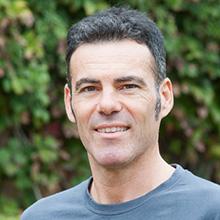 Juan Ramón González Associate Research Professor
Juan Ramón González Associate Research Professor -
 Michelle Turner Associate Research Professor
Michelle Turner Associate Research Professor -
 Camille Lassale Assistant Research Professor
Camille Lassale Assistant Research Professor -
 Eider Arenaza-Urquijo Assistant Research Professor
Eider Arenaza-Urquijo Assistant Research Professor -
 Lea Maitre Assistant Research Professor
Lea Maitre Assistant Research Professor -
 Oleguer Plana Assistant Research Professor
Oleguer Plana Assistant Research Professor -
 Ujué Fresán Assistant Research Professor
Ujué Fresán Assistant Research Professor -
 Cristina O'Callaghan Associated Researcher
Cristina O'Callaghan Associated Researcher -
 Kurt Straif Associated Researcher
Kurt Straif Associated Researcher -
 Jordi Júlvez Associated Researcher
Jordi Júlvez Associated Researcher -
Kyriaki Papantoniou Associated Researcher
-
 Oriana Ramírez Associated Researcher
Oriana Ramírez Associated Researcher -
 Paula Petrone Associated Researcher
Paula Petrone Associated Researcher -
 Sarah Koch Associated Researcher (external)
Sarah Koch Associated Researcher (external) -
 Isabelle Thierry-Chef Senior Researcher
Isabelle Thierry-Chef Senior Researcher -
 Gemma Castaño Staff Scientist
Gemma Castaño Staff Scientist -
 Joren Buekers Postdoctoral Researcher
Joren Buekers Postdoctoral Researcher -
 MARIONA BUSTAMANTE Staff Scientist
MARIONA BUSTAMANTE Staff Scientist -
Stefano Guerra Visiting Scholar
-
 Elizabet Diago Associated Researcher
Elizabet Diago Associated Researcher -
 Jeffrey Lazarus Head of the Public Health Liver Group
Jeffrey Lazarus Head of the Public Health Liver Group -
 Mark J Nieuwenhuijsen Research Professor, Scientific Director of the Severo Ochoa Programme, and Director of the Urban Planning, Environment and Health Initiative
Mark J Nieuwenhuijsen Research Professor, Scientific Director of the Severo Ochoa Programme, and Director of the Urban Planning, Environment and Health Initiative -
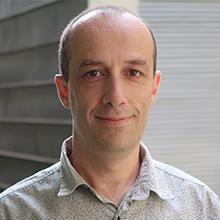 Xavier Basagaña Research Professor
Xavier Basagaña Research Professor -
 Davide Rasella ICREA Research Professor and Head of the Health Impact Assessment and Evaluation Group
Davide Rasella ICREA Research Professor and Head of the Health Impact Assessment and Evaluation Group -
 Joan Ballester Associate Research Professor
Joan Ballester Associate Research Professor -
 Payam Dadvand Associate Research Professor
Payam Dadvand Associate Research Professor -
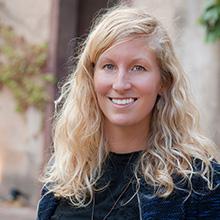 Natalie Mueller Assistant Research Professor
Natalie Mueller Assistant Research Professor -
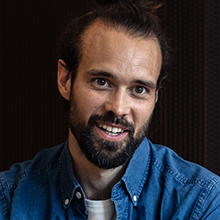 Guillaume Chevance Associated Researcher
Guillaume Chevance Associated Researcher -
 Margarita Triguero-Mas Associated Researcher
Margarita Triguero-Mas Associated Researcher









